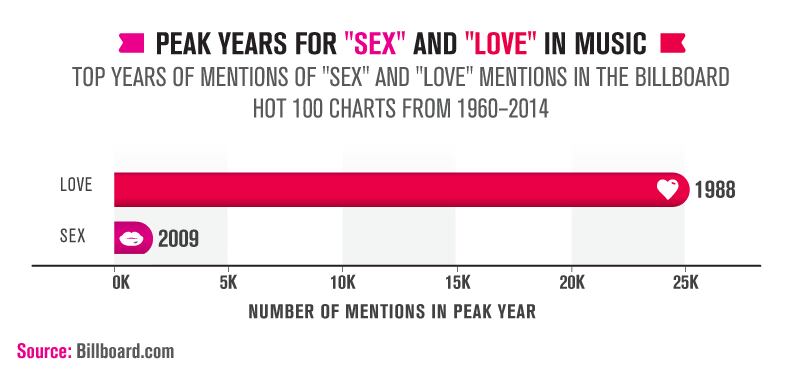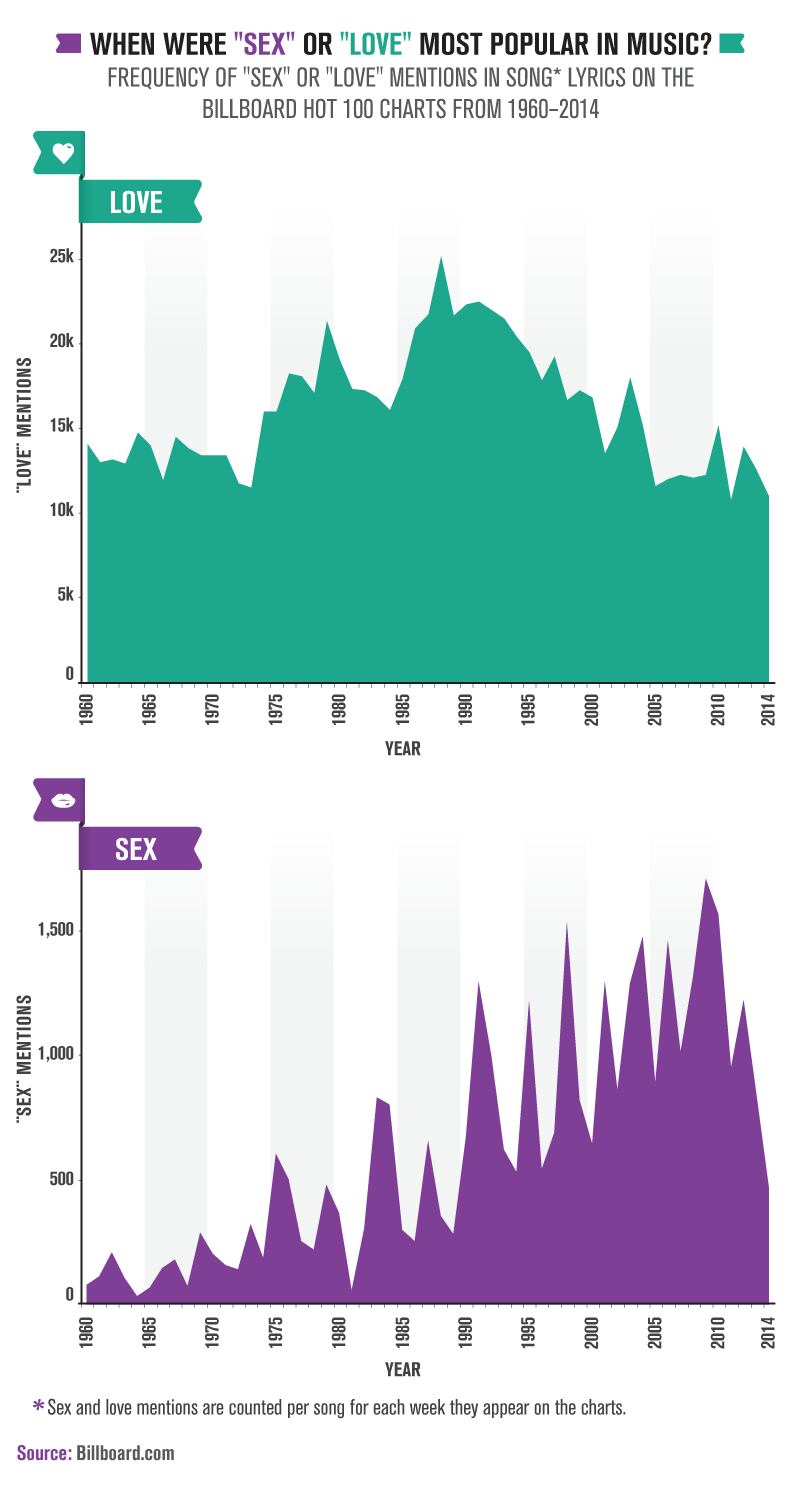Two of the top songs in the country right now — “What Do You Mean?” by Justin Bieber and Drake’s “Hotline Bling” — are not only both sung by Canadian artists, but they also briefly hit on a similar topic: sex.
In “What Do You Mean?”, Bieber sings, “First you wanna go to the left and you want to turn right. Wanna argue all day, make love all night.”
Meanwhile, Drake, through innuendo, references his sexual history with another.
These two songs are not uncommon in today’s music world. In fact, according to a new study from Fractl and Superdrug Online Doctor, modern pop music has been making more references to sex than love, with the term “sex” itself on the rise among pop songs, Mic reported.
“On the whole though, today's popular music seems to be getting a lot more blunt,” Mic reported.
To find this, researchers looked at how often the words “sex” and “love” were found in every pop song from 1960 to 2014, according to Mic. They then took the number of times the word was mentioned in a specific song and multiplied it by the number of weeks that song was on the top charts, showing how many specific times both words were used, the study said.
The term “sex” has risen considerably within the last five years, according to Mic. In fact, in 2010, the term “sex” was used close to 2,000 times — more than double the amount used in the mid-1980s.

Still, “love” is a popular term in music. In 1988, it was used more than 25,000 times, and it’s steadily used more than “sex,” despite the latter’s rise in popularity.

“There’s still a lot more songs explicitly about 'love' than ‘sex.’ Yet the trends are clear: Sex sells, and it's selling more than ever,” according to Mic.
This isn’t an uncommon thought. In 2011, researchers from the State University of New York in Albany found that sex sells for pop music, according to ABC News. Most of the songs at the time of the research included sexual content, and, overall, the songs with sexual content tended to sell more and attract more listeners than other songs, ABC News reported.
But that might not be the case anymore. Some singers, like Adele, have spoken out against using sex — whether it’s through lyrics or clothing — to sell songs, according to The Huffington Post.
"I’ve seen them up close, and they don’t even look like that,” Adele said of certain celebrities, according to The Huffington Post. "Exploiting yourself sexually is not a good look. I don't find it encouraging."
That may fit with what really sells. Back in August, a study from the American Psychological Association found that sex and violence don’t sell as much as we all think. Sexual content will reach a larger audience, sure, but that larger audience doesn’t necessarily always create “more sales for advertisers,” according to Fortune.
To find this, researchers looked at how sexual and violent material affected one’s memory, how they felt about the brand and whether or not they’d buy the advertisement’s product, Fortune reported.
“Buying intentions decreased when brands were embedded in programs that contained sex, violence, or both, but they were not significantly affected by advertisements that contained sex or violence themselves,” according to Fortune.
And even if sex does encourage some people to buy or invest in a product, they won’t stay invested forever because it’ll take up too much of their attention span, according to Quartz.
“Humans are hard-wired to pay attention to violence and sex, but they only have a limited capacity to pay attention,” researcher Brad Bushman told Quartz. “If they’re focused on the violence or sex in a video game or magazine, they have less attention to pay to a Tide laundry detergent."
And, as Madeline Wahl wrote in a column for The Huffington Post back in July, too much sexual advertising doesn’t help the American people, showing that advertisers, musicians or moviemakers may need to change their ways if they want to engage customers who will be with them for the long term and invest in their product.
“What if we cleared the roadblocks?" Wahl asked. "If we featured more people who were intelligent first, beautiful second? Is there a way to change the culture of what is beautiful, or to redefine beauty?”
For more on sexual advertisements:
Should the 'Victoria's Secret Fashion Show' be an Internet-only event?
The lie behind the idea that ‘sex sells’
Google's getting rid of sexual advertisements this month
Herb Scribner is a writer for Deseret News National. Send him an email at hscribner@deseretdigital.com or follow him on Twitter @herbscribner.



